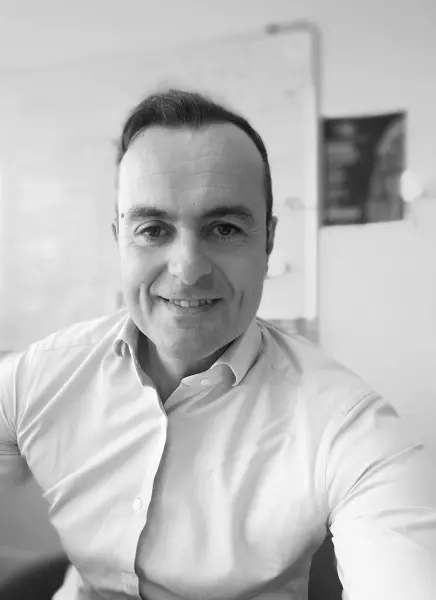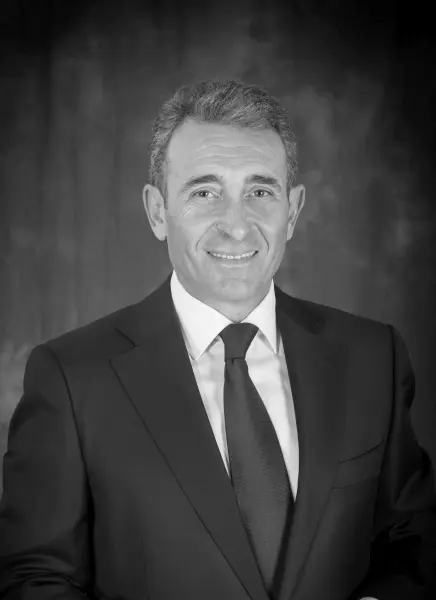Managers on the front line

Historians and sociologists of the future will certainly look closely at 2020, the year in which the world came to a voluntary halt in an attempt to stop the spread of a virus whose deadly course was shaping up to be potentially devastating. They will wonder about the proportionality between the measures taken and the reality of the danger incurred, about the “butterfly effects” of globalisation (since then renamed – and probably wrongly – the “pangolin effects”) or about the pivotal nature of 2020 with regard to what happened afterwards: was the pandemic the trigger for a profound reform of our lifestyles or the last chance missed by a humanity hell-bent on self-destruction?
In this month of May 2020, while the confinement measures are very gradually being lifted, it is not yet time to take stock, even if it is clear that the pandemic is laying bare the woes of our world. The rebuilding process promises to be a particularly perilous exercise as Covid-19 will have contributed to deepening the fractures, some of which were already gaping. In addition to the health emergency, there is also the economic and social emergency, and to deal with it, the role of business leaders is crucial: beyond public action – whose powerful mobilisation made it possible to reduce the severity of the shock. It is through their ability to make the most of a situation that is likely to deteriorate for many months that business leaders will contribute to relaunching the economic machine and thus safeguarding as many jobs as possible.
In our role as shareholder-partner, we have been able to measure during these exceptional weeks their fighting spirit, creativity and also their attachment to their teams, which goes far beyond their title of “bosses”. That is why we wanted to dedicate our first newsletter of the Covid era to all of them.
We hope you enjoy the reading!
The Sparring Capital Team
Crossed Interview of Patrice Serange, Michel Le Bras and Bruce Xiste

Patrice Serange, CEO of Nalys, an engineering consulting company

Michel Le Bras, CEO of Propriétés Privées, a network of real estate agents

Bruce Xiste, CEO of GSRI, an engineering company specialising in the structural integrity of critical infrastructures
Sparring Capital gives the floor to the managers of its investee companies for a first “on-the-spot” analysis of the effects of Covid-19 on their companies and markets.
How has the crisis impacted company operations?
Patrice Serange: I noticed a remarkable adaptability of our customer’s organisations, with an extremely powerful and fast shift to teleworking. Our own organisation was agile enough to cope with such a change and we’ve therefore been able to pursue our activity during the confinement period, with the majority of our assignments switching over to teleworking. However, some projects were put on hold during the confinement period, particularly those that required an “on-site” physical presence.
In the same way, decision-making processes adapted very quickly and decision-making cycles, regarding both our customers and Nalys, have been rather shortened, with less time spent in meetings and more focus put on the core of the topics. I have the feeling that we became more efficient, but at the price of a pre-eminence of the formal decision-making process over the informal processes. Yet, companies need these two channels to co-exist effectively, because a small coffee break on a table corner also contributes to the final decision, by encouraging the emergence of a collective intelligence.
I also noticed that, after an initial paralysis phase, the teams sprang into action to deal with this exceptional situation. All this has been positive in terms of sharing the business project and cohesion.
On the other hand, I am more cautious about the ability to reproduce such an organisational method over the long term. Indeed, even if organisations quickly reacted, this was made possible by the existence of a very robust organisational base that enabled us to maintain operations “without the machine breaking down”. What we experienced may work for a few weeks but probably not for several months because all the little cogs that keep a company efficient run the risk of grinding to a halt.
Michel Le Bras: The majority of the company’s workforce is comprised of employees with childcare issues. Therefore, as soon as it was announced that schools might close at the beginning of March, a teleworking plan was put in place. When the confinement was confirmed, the plan was immediately activated. During the weekend, the final adjustments were made, and as of Monday the teams picked up their equipment. There was no break, the continuity of service was seamless for the negotiators: the company just simply transposed itself remotely. Afterwards, we adjusted with partial unemployment and specific actions: for example, we closed the RV mandates service in 24 hours.
In terms of management, we accelerated the pace of exchanges to optimise responsiveness. Instead of one executive committee meeting every fortnight, we have two per week; one on Monday and one on Friday. I also do a weekly Facebook live, every Friday, to talk to the negotiators.
We were extremely impressed by the commitment of the teams, their involvement and their shouldering of responsibility. They adapted to the situation and mobilised to support the negotiators. For example, they spontaneously organised Facebook live to guide and inform the negotiators in real time. This was done naturally. Many training sessions were set up to inform and explain the sector-specific directives issued by the government.
We also took advantage of these special circumstances to speed up IT developments. In the end, we gained in performance.
Bruce Xiste: We found that, in these very special circumstances, the work processes were functioning and that the Business Unit organisation was more effective in implementing executive committee decisions. The various existing reports did not serve much purpose in steering the company, so we favoured dialogue with the BU Managers, the CSE and direct, regular communication with the staff.
There were opportunities for simplification. What was complicated to solve internally before Covid became very simple after Covid, since managers were all focused on the same objective of getting through this crisis. We gained in agility and we are going to keep it that way. The simple fact of having installed an internal messaging system before Covid allowed us to communicate and work during the health crisis. We realised that we lacked a true shared business planning tool. These tools exist, they are compatible with our HR and remuneration tools.
All in all, the company resisted well to this health crisis thanks to the understanding and exemplary discipline of all the group’s employees. We quickly realised that clear and accurate communication was very effective, particularly during a period when we were all teleworking. On the other hand, we were not well equipped in terms of hardware and software. We had a tool that worked fairly well in an office space, but poorly when we were teleworking. We took advantage of this crisis to invest in hardware and review our network architecture in order to be more agile and ensure our future growth.
Will the crisis structurally change the way your company works?
Bruce Xiste: Teleworking, simplification of processes, asking the question: what purpose does this serve? In short: CHALLENGE EVERYTHING. Tomorrow’s world will certainly not be as different as yesterday’s, but we may as well push for a simplification and improvement of processes in order to 1) eliminate the superfluous, 2) increase agility, and 3) preserve the environment by stopping waste. Indeed, Personal Protective Equipment that we bought in quantity before Covid, proved to be a rare commodity during the crisis. We understood that it made no sense to buy disposable, single-use equipment in a world where environmental protection will be the challenge of the future. Once again, together with our teams, we reviewed this process and will invest in “high-end” PPE that is durable and adapted to our businesses.
We will be able to use our many square metres of office space more efficiently. It is clear that our large-scale premises will become more mobile, flexible, shared, and equipped with the best IT tools in the future.
“Cash is king” turned out to be the survival theorem. We realised that we were not very efficient before Covid and we have been much more efficient since then. The difference: a greater focus on the recovery exercise. The crisis also powerfully shows the importance of the support functions. The battle between the production teams and the support functions completely ended. HR, Finance, and Purchasing proved to be just as important as the production functions. It is up to the managers to remind us of this once the crisis is over.
Lastly, research and development earned its stripes. We realise that we would have liked to have had prototypes that work rather than project plans. This is the topic of tomorrow that will ensure leadership position in our markets.
Patrice Serange: We will collectively take advantage of the beneficial lessons of this crisis with a likely increase in the use of teleworking: after having practiced it exclusively for several weeks, management teams will be less reluctant about its expansion.
As far as I’m concerned, as a manager, I have not yet fully defined my “decision matrix” on the extent to which such a move towards more teleworking should take place. At this stage, I identify four major issues: individual role in the organisation, productivity measurement, effective decision-making, and management of ambivalent wishes. On this last point, like any company employing highly qualified staff, we are faced with the challenge of managing our staff turnover and the issues of “well-being in one’s job” are central. However, in this respect, the desires of our teams are ambivalent: on the one hand, employees are looking for more inclusion in the company project, more time shared between colleagues, a greater sense of belonging, and eventually greater proximity. On the other hand, they are also looking for more freedom in the organisation of their time and flexibility in their work.
Once these trade-offs are made, we will need to keep an adjusted organisation alive, which will not be the least of the challenges, as a new framework will have to be set. The key will lie in the company’s ability to see all of its stakeholders remain fully aligned. This will undoubtedly require the implementation of training for the different management layers to accompany this change. In the long run, this may also lead to some savings in rent, but for our business, this will actually remain rather marginal compared to the other challenges.
Michel Le Bras: It is true that since it went well, some people would like to continue teleworking. But this is not going to change the way of working over the long term. We will be more adaptable towards people with young children or childcare problems, of course, we will learn from this to be more flexible. But overall, in terms of how the company operates, we will probably return to the way things used to be, particularly because there is no major public transit issue. We are in the provinces, people generally live 15 minutes by car from the company.
For negotiators, on the other hand, the crisis changed the way they work. They will make much greater use of virtual tools. In this sense, the crisis accelerated market trends. It led to the widespread use of images, particularly for virtual visits, and advanced the use of electronic signatures. On this point, we are lucky because we were already ahead of the game. The company has been using digital deeds for four years, which gave our negotiators an advantage over some competitors.
Ironically enough, this responsiveness was aided by a number of recent events, including the 2019 strikes. Indeed, in order to be able to continue to function as well as possible while taking into account the travel constraints of negotiators during the strike, we built up a vast distance training plan, very qualitative, with an internal video studio in particular.
The plan was immediately redeployed, enabling more than 100 people to be recruited and trained in April. The fact that it was used on a large scale enabled us to measure the virtues of this type of system over time, which allows new negotiators to be integrated and trained very quickly as soon as they join the network, without having to wait for face-to-face training sessions. These tools and techniques will continue to be used and even more so in the future.
In the same way, this crisis changed the way we interact with negotiators. For the better. From the very beginning of the crisis, we thought about how we could support them, how we could maintain the link beyond the professional relationship. First, we set up an excellent training team, with well-known personalities in the profession. But beyond that, we set up meeting points via digital technology. Yoga and stretching every day at 8.30 a.m., cooking classes on Thursday evenings and on Wednesday afternoons, a clown and drawing classes to keep the children busy. These exchange spaces were a great success! We had over 30,000 views every morning for stretching! We became number 1 in terms of Facebook followers in April, ahead of all the real estate players. And we found out that we could have a slightly different, more complete relationship with the negotiators, thus creating cohesion. These are avenues that we will continue to explore in the future.
Lastly, confinement led to the acceleration of natural trends in our business. We may have put in place in one month devices that would have taken one or two years to deploy without Covid.
What are the short-term challenges of the post-confinement period that is opening up?
Patrice Serange: In the very short term, the priority is to bring the teams back on site to resynchronise everyone. We therefore manage very operational subjects to reassure our employees and organise the recovery as well as possible: masks, gel, air conditioning management, use of lifts, etc.
In a second phase, it will mostly be a matter of actively relaunching the sales and recruitment mechanism while starting to identify potential evolution regarding work organisation. This is likely to remain an important issue for some time to come and goes far beyond the strict subject of teleworking: returning to our historical productivity level will be our main challenge.
Eventually, once the Covid-19 crisis will be completely behind us, I consider that we will find a way to benefit from this experience of an alternative organisation as what we have gone through is a rare opportunity to make in-depth changes into the way we work.
Michel Le Bras: We equipped employees and independent negotiators with masks, visors, and gel to reassure them and their clients. We put in place a “Trust and Safety” plan for negotiators with intensive training on the organisation of visits: with guides and lots of explanatory videos. The aim is to ensure negotiators and clients can interact in complete safety.
Responsiveness is our watchword. We always tried to react very quickly. That was the case with the implementation of confinement. It is also the case for deconfinement. We are in the process of putting the call centres back into operational mode to make appointments. We set up the sales pitch and organised call dispatching. We also took advantage of the period to further improve our tools. In particular, we worked on a new telephone appointment software.
In the longer term, how do you assess the impact of this crisis on your market?
Michel Le Bras: We must remain cautious, but over the medium and long term, trends are not expected to change. We operate in a market based on the main residence. Transactions are based on the natural mobility of the French, marriages, divorces, inheritances, and professional mobility. This underlying structure is sound. The crisis could even increase the French people’s appetite for investing in the main residence as a preferred investment vehicle, particularly in relation to the stock market. In our market, we also know that one of the determinants of the number of transactions is interest rates. However, we do not see any signs of a rate rise.
The question is rather about the short term. To what extent will the banks be able to remobilise themselves in the market for real estate loans to individuals knowing that they have a lot of work to do with businesses? We will see that in the coming weeks.
As far as our network is concerned, we think we will come out of this crisis stronger. The model, because of its responsiveness and the ability to widely distribute tools to help independent negotiators, is well adapted to difficult times. It has become stronger with each crisis, and this one should be no exception to the rule. People who opened agencies, driven by the market, could choose to return to lighter and more efficient solutions, such as those we offer.
Patrice Serange: Over the long term, some industries may be structurally impacted in their business models. However, I do not identify at this stage such an impact of the pandemic on the engineering consulting business.
Even if, in the short term, some of our clients will certainly be impacted, more or less severely, with an impact on our own business, my feeling is that we will eventually return to the initial state. For example, in the air transport sector, people will want to return to their travel habits, either professionally or personally. This is unlikely to be immediate and the aeronautics industry is likely to experience a cyclical downturn of a few years, but without questioning the long-term outlook. The major research and development programmes aimed at ensuring more environmentally friendly transport will no doubt be stepped up and accelerated, but this trend was, in any case, already well under way.
Some of Nalys’ customer sectors could even sustainably benefit from the consequences of Covid-19 crisis, particularly the healthcare sector, with, for example, an increase in R&D public funding or changes in product development regulations.
Bruce Xiste: We have a lot of “public” customers and they disappeared during confinement. Reconnecting with them has been done gradually and without problems through sharing and solidarity actions. These customers will still be there tomorrow and we do not anticipate any lasting impact of Covid on the dynamics of our market.
On the other hand, times of crisis make it possible to drive deals. Acquisitions are something to look at now!